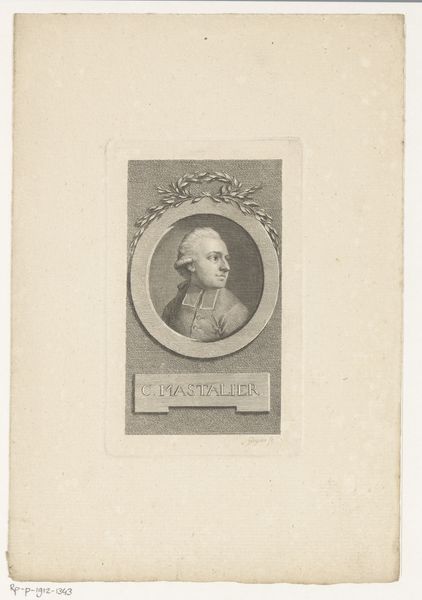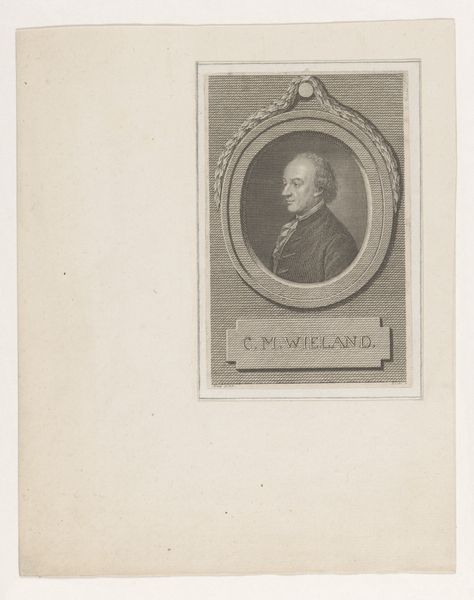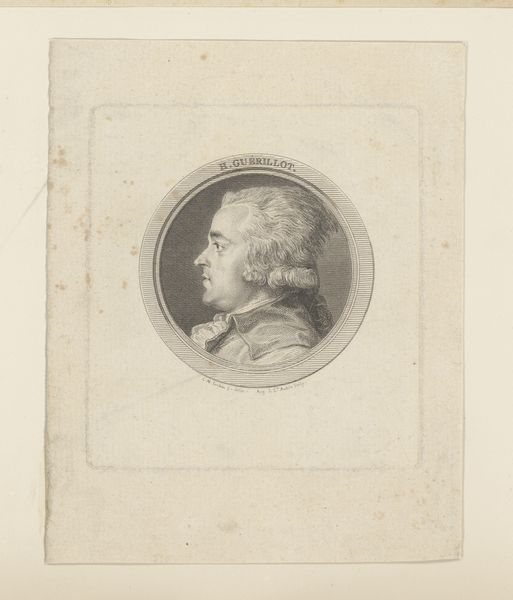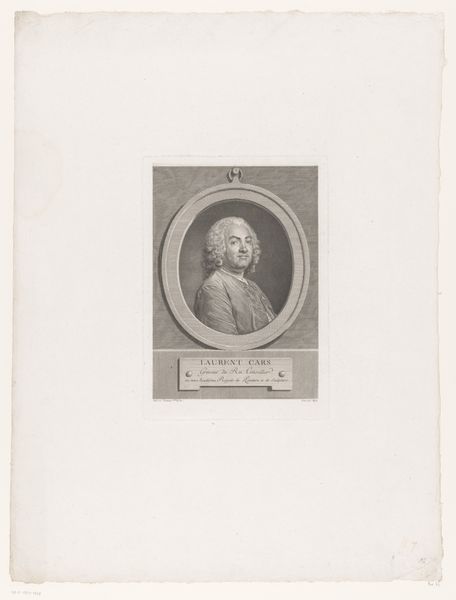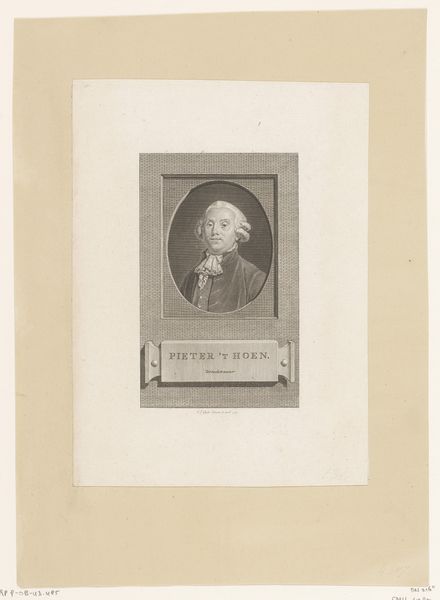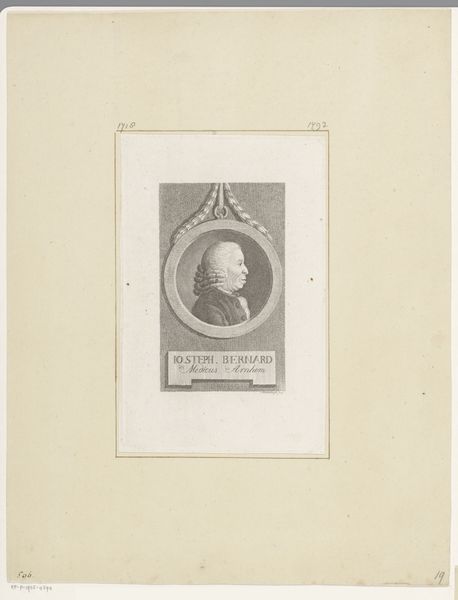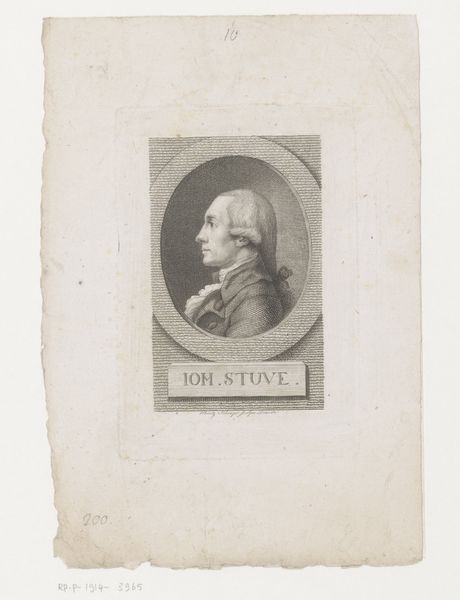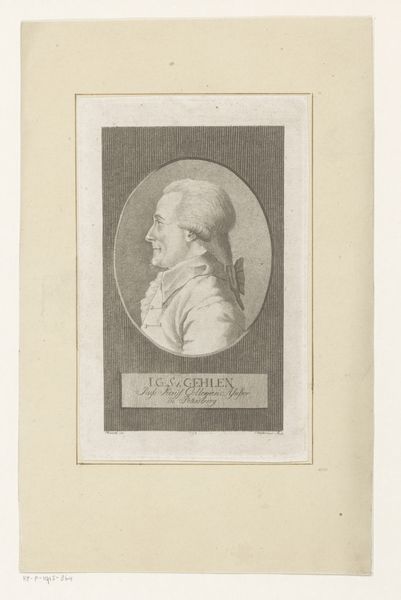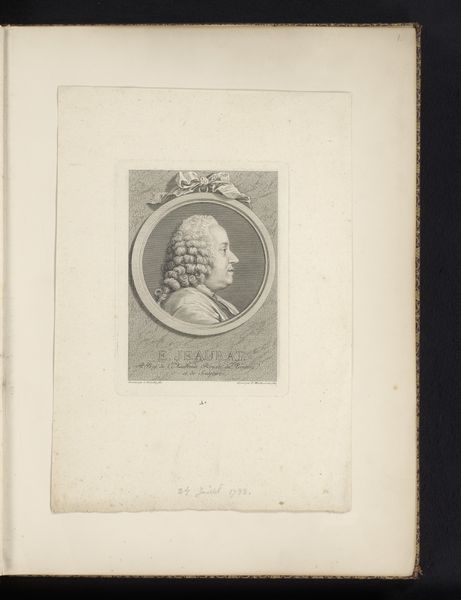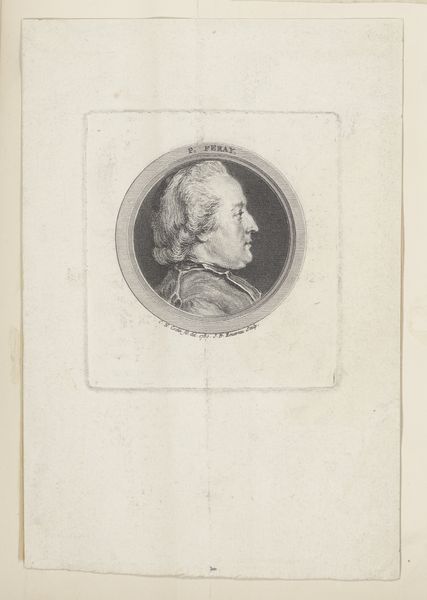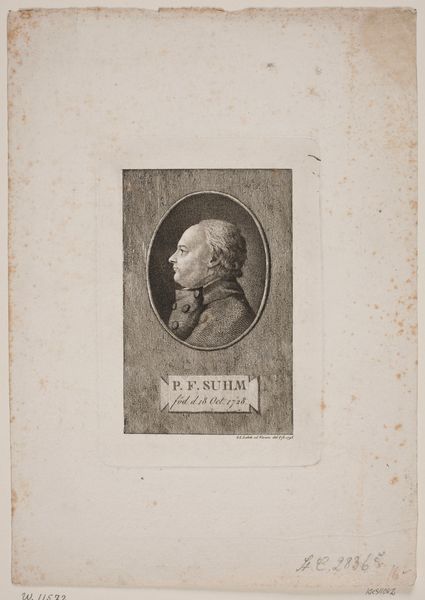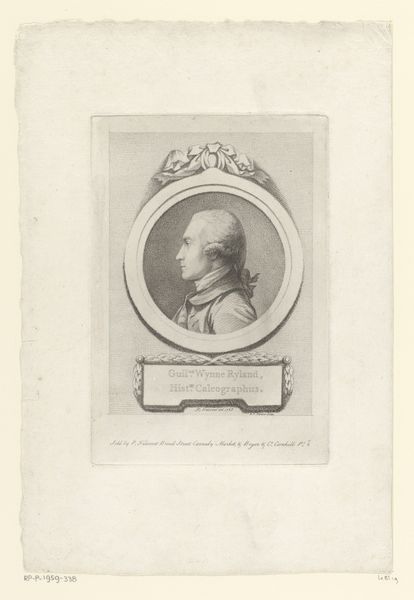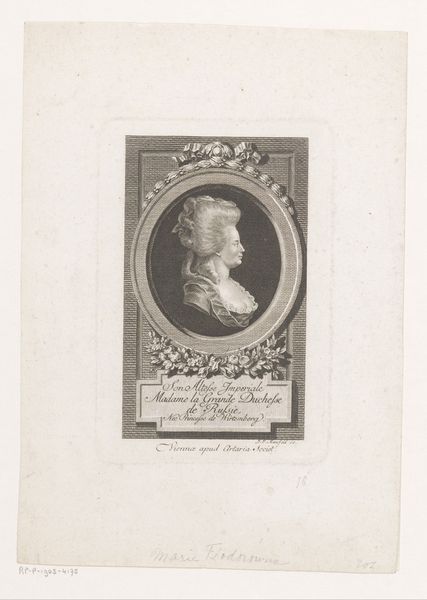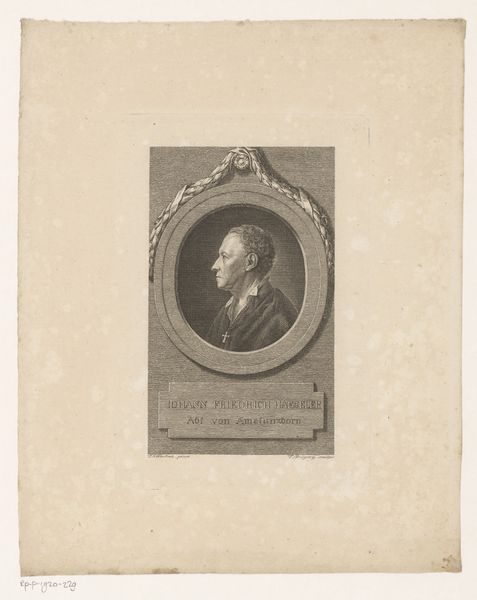
print, engraving
#
portrait
#
neoclacissism
# print
#
engraving
Dimensions: height 130 mm, width 84 mm
Copyright: Rijks Museum: Open Domain
Editor: We're looking at a portrait of Christian Felix Weise, made between 1752 and 1803 by Christian Gottlieb Geyser. It’s an engraving, which gives it a very crisp, almost austere quality. The subject seems formally posed within the circular frame. What strikes you most about this print? Curator: The formality you mentioned is key. Prints like this circulated widely during the Neoclassical period. Consider the public role of imagery in solidifying status. What does the framing – the circle, the rectangle below – suggest about Weise’s position within society? Editor: Maybe it's about containing him, presenting a controlled image? Curator: Precisely. Think about the rise of the bourgeoisie and how they sought to legitimize their power through portraits mimicking those of the aristocracy. This isn't just about representing an individual; it's about embedding him within a framework of respectability and authority that the public could easily disseminate. It almost performs a kind of early media function, doesn't it? What’s the effect of rendering it in print, rather than paint? Editor: Well, prints are more accessible, less unique…almost like a brand? Curator: An excellent way to put it. It transforms Weise into a recognizable figure, furthering his influence through mass media of the time. Also, consider who controlled the means of image production and how that impacted what stories got told and whose faces were seen. Editor: So, the portrait is less about Weise as a person and more about what he represents, culturally and politically? I hadn't considered the distribution aspect so thoroughly. Curator: Exactly. Understanding art is about grasping its role within broader social and power dynamics, revealing a rich world to be discovered beyond initial aesthetic judgements. It all contributes to the narrative that shapes public perception.
Comments
No comments
Be the first to comment and join the conversation on the ultimate creative platform.
